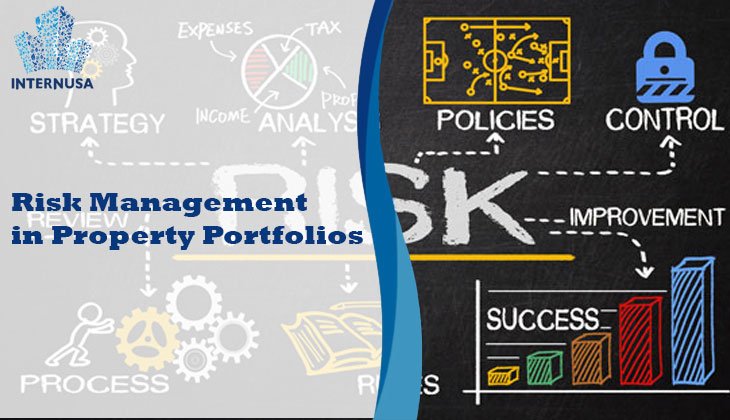Technology and Innovation in Modern Investment Management
Investment management is a crucial aspect of financial planning that involves making decisions about asset allocation, portfolio management, and risk assessment to achieve specific financial goals. Whether for individuals or institutions, effective investment management can lead to wealth accumulation, financial security, and long-term economic stability. This article explores the key principles, strategies, and benefits of investment management, providing a detailed overview for investors of all levels.
What is Investment Management?
Investment management refers to the professional handling of various financial assets and investment vehicles, including stocks, bonds, real estate, and alternative investments. The primary objective is to maximize returns while minimizing risks based on an investor’s financial goals and risk tolerance.
Investment management includes:
- Portfolio creation and diversification
- Asset allocation strategies
- Risk assessment and management
- Performance monitoring and evaluation
- Tax efficiency and compliance
The Importance of Investment Management
Effective investment management is essential for individuals and organizations looking to grow and protect their wealth. Some key reasons why investment management is important include:
- Wealth Growth: Proper asset allocation and diversification help investors maximize their returns over time.
- Risk Mitigation: Investment management involves assessing risks and taking measures to reduce exposure to potential losses.
- Inflation Protection: Investing in the right assets ensures that purchasing power is preserved over the long term.
- Financial Security: A well-managed investment portfolio ensures that investors can meet future financial obligations and goals.
- Professional Expertise: Investment managers bring experience and knowledge to navigate market fluctuations and economic uncertainties.
Key Investment Management Strategies
Different investment strategies cater to varying risk appetites and financial goals. Here are some commonly used investment strategies:
1. Active vs. Passive Management
- Active Management: Fund managers or investors actively buy and sell securities, aiming to outperform the market by leveraging research and analysis.
- Passive Management: Investors track a specific index (such as the S&P 500) with minimal buying and selling, reducing costs and aiming for long-term growth.
2. Asset Allocation
Asset allocation involves distributing investments across different asset classes (stocks, bonds, real estate, commodities) to optimize risk and return. Common approaches include:
- Conservative Allocation: Higher proportion in bonds and fixed-income securities
- Balanced Allocation: Mix of equities and fixed-income investments
- Aggressive Allocation: Higher proportion in stocks and growth-oriented assets
3. Diversification
Diversification reduces risk by spreading investments across various sectors, industries, and geographies. This strategy minimizes losses from poor-performing assets while taking advantage of multiple growth opportunities.
4. Value vs. Growth Investing
- Value Investing: Focuses on undervalued stocks with strong fundamentals and long-term potential.
- Growth Investing: Targets companies with high revenue and earnings growth potential, even if they are currently expensive.
5. Income Investing
This strategy prioritizes assets that generate regular income, such as dividend-paying stocks, bonds, and real estate investment trusts (REITs). It is popular among retirees and those seeking passive income streams.
Risk Management in Investment Management
Every investment carries some level of risk, and effective investment management involves identifying, assessing, and mitigating these risks. Common risk management techniques include:
- Hedging: Using financial instruments like options and futures to offset potential losses.
- Stop-Loss Orders: Setting predefined selling points to limit losses on individual investments.
- Portfolio Rebalancing: Periodically adjusting asset allocation to maintain the desired risk level.
- Economic and Market Analysis: Monitoring economic indicators, geopolitical events, and market trends to make informed investment decisions.
The Role of Investment Managers
Investment managers, also known as portfolio managers or financial advisors, play a crucial role in overseeing investment portfolios. Their responsibilities include:
- Developing investment strategies tailored to clients’ financial goals.
- Conducting market research and analyzing economic trends.
- Managing and adjusting portfolios to optimize returns.
- Ensuring tax efficiency and regulatory compliance.
- Communicating with clients about portfolio performance and market updates.
Technology in Investment Management
Technology has transformed investment management, making it more accessible and efficient. Key technological advancements include:
- Robo-Advisors: Automated platforms that provide investment recommendations based on algorithms and client preferences.
- Artificial Intelligence (AI) and Machine Learning: Enhancing data analysis and decision-making in portfolio management.
- Blockchain and Cryptocurrency: Providing new investment opportunities and secure transaction methods.
- Big Data and Analytics: Enabling better market predictions and risk assessment.
Ethical and Sustainable Investing
With growing awareness of environmental, social, and governance (ESG) factors, many investors prioritize ethical and sustainable investing. This approach involves investing in companies that uphold social responsibility, environmental sustainability, and ethical governance practices.
Popular ESG investment options include:
- Green Bonds: Bonds that fund environmentally friendly projects.
- Socially Responsible Funds: Funds that exclude industries like tobacco, firearms, and fossil fuels.
- Impact Investing: Investments that aim to generate positive social and environmental impact alongside financial returns.
Process To Achieve Financial Success
Investment management is a vital process for achieving financial success, whether for individuals, businesses, or institutions. By understanding key investment strategies, risk management techniques, and emerging trends, investors can make informed decisions to optimize their portfolios. Leveraging professional expertise and technological advancements further enhances investment efficiency and effectiveness. Whether you are a beginner or an experienced investor, a well-structured investment management approach is essential for securing long-term financial growth and stability.







